Author: Tim Kroenert
There are more than 200 results, only the first 200 are displayed here.
-
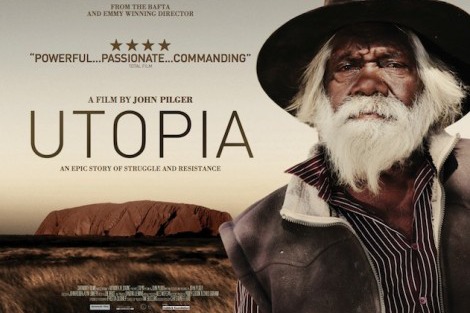
ARTS AND CULTURE
- Tim Kroenert
- 06 February 2014
13 Comments
Rabble-rousing Australian journalist John Pilger is prone to hyperbole. He refers to a 'concentration camp' located on Rottnest Island and proceeds to denounce the atrocities that occurred there. He conducts a vox pop amid flag-waving Australia Day revellers, goading them with questions about the white invasion with predictably cringe-worthy results. He may have good intentions, but he's not doing Aboriginal Australia any favours.
READ MORE 
-
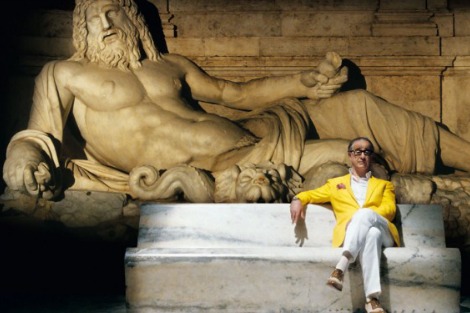
ARTS AND CULTURE
- Tim Kroenert
- 30 January 2014
5 Comments
The cardinal is senseless to the libertine Jep's enquiries about faith, and prone to missing ordinary human connections in the midst of his politicking and self-obsession. If this is an unflattering reflection of institutional Catholicism, it finds its counterpoint in an ancient nun known as the Saint, whose humility reveals to Jep the possibility of transcendence.
READ MORE 
-
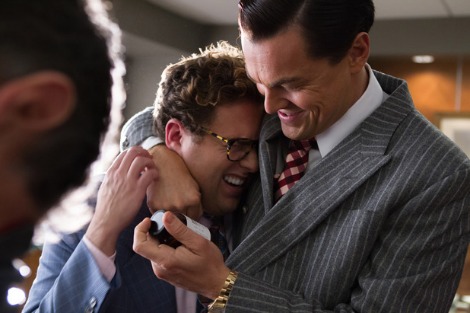
ARTS AND CULTURE
- Tim Kroenert
- 23 January 2014
5 Comments
If ultimately Belfort's comeuppance for his innumerable evils is modest, and his lessons remain unlearned, it is deeply and frighteningly ironic, in a way that has parallels in the real world. The global financial crisis resulted precisely from the kind of unbridled amorality that the characters in The Wolf of Wall Street gleefully embrace. Money is their morality. Lives are left battered and bruised, but the Wall Street party keeps raging on.
READ MORE 
-
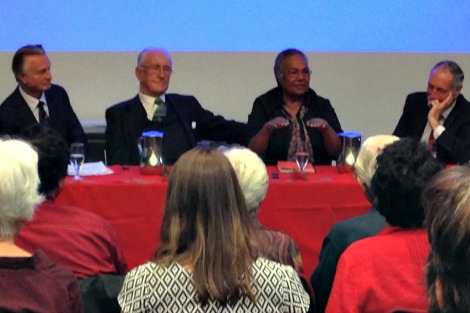
AUSTRALIA
- Tim Kroenert
- 13 January 2014
2 Comments
More than a century after Federation, Australia has yet to resolve this tension between a romantic notion of what 'Australia' is, and the depravities that were undertaken to attain it. It may be couched in more polite terms, but it rears its head in ham-fisted and fundamentally disrespectful approaches to Indigenous policy, such as recent moves by the Coalition Government that threaten to undercut the spirit of Native Title legislation.
READ MORE 
-
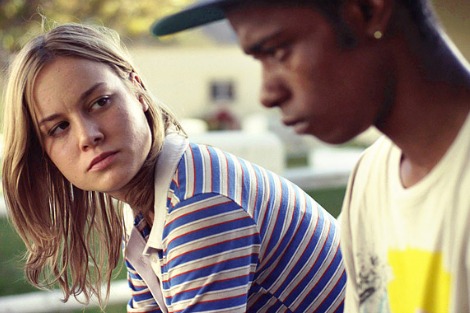
ARTS AND CULTURE
- Tim Kroenert
- 19 December 2013
Grace is both a character and a state of being. As the lead supervisor of a foster care facility, she oversees her charges with a combination of firmness and friendship. She strictly enforces rules and protocols while remaining unerringly empathetic, easily glimpsing the pain and trauma that lies just beneath the hostile or eccentric facade. But her power of empathy has its roots in past experience that threaten to smother her present.
READ MORE
-

AUSTRALIA
- Tim Kroenert
- 12 December 2013
5 Comments
More than a century after Federation, Australia has yet to resolve this tension between a romantic notion of what 'Australia' is, and the depravities that were undertaken to attain it. It may be couched in more polite terms, but it rears its head in ham-fisted and fundamentally disrespectful approaches to Indigenous policy, such as recent moves by the Coalition Government that threaten to undercut the spirit of Native Title legislation.
READ MORE
-
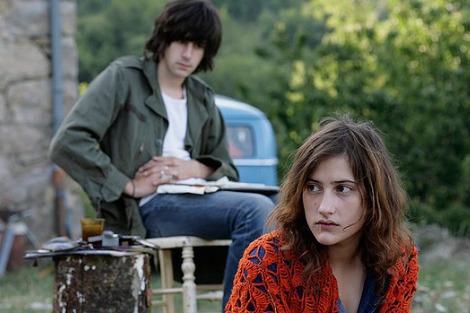
ARTS AND CULTURE
- Tim Kroenert
- 05 December 2013
As high school students they are too young to have begun the cultural revolution. But they try to fan its flames and bring its ideals to bear. Their idealism is at times tested against the cynicism or jaded moral certitude of older revolutionaries, one of whom chastises them for entertaining legitimate doubts about the means employed by Mao Zedong. There clearly is a gulf between healthy skepticism and wilful blindness.
READ MORE
-
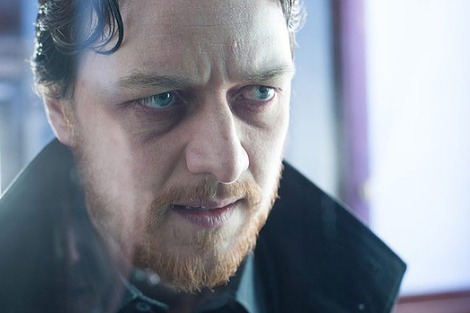
ARTS AND CULTURE
- Tim Kroenert
- 28 November 2013
Police detective Bruce Robertson is corrupt, violent, misogynistic, and a depraved drug addict. But he is not entirely inhuman, and Filth spends much frenetic energy trying to map the ghastly inner wounds that bleed greenly into his outer corruption. But just how do you build sympathy for a character whose near-to-first on-screen act is to sexually assault the underaged girlfriend of a murder suspect?
READ MORE 
-
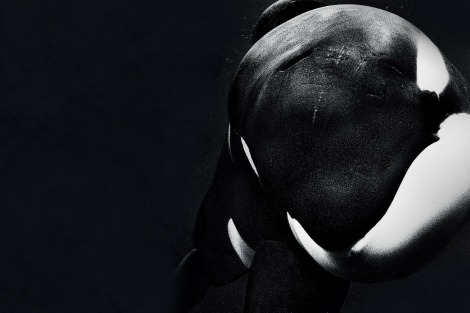
ARTS AND CULTURE
- Tim Kroenert
- 21 November 2013
1 Comment
I was grateful that I had my back to my colleagues. My tears were occasionally due to sadness, but just as often they were a result of outrage. Blackfish finds much ground for moral outrage in its consideration of the suffering endured by trained orcas. It is an impassioned riposte to a commercial model in which death and suffering, human and cetacean alike, are merely the byproducts of profit.
READ MORE 
-
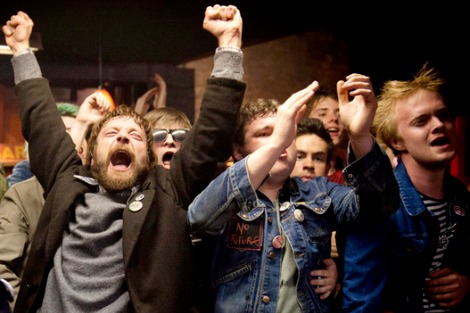
ARTS AND CULTURE
- Tim Kroenert
- 14 November 2013
In a city riven by violent hatred between Catholic and Protestant, non-religious and charismatic music lover Terri Hooley managed to stand outside and above the conflict. He became a kind of rickety prophet to Belfast's disaffected youth, as godfather of the city's burgeoning punk music scene. If any community had a reason to embrace the rage and unity of punk culture, it was Terri Hooley's Belfast.
READ MORE 
-
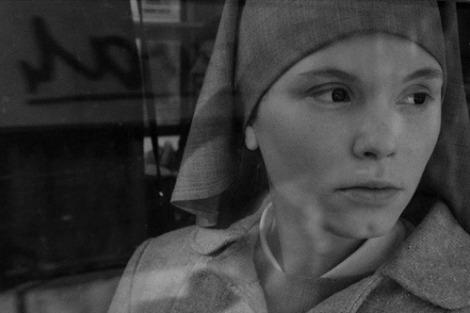
ARTS AND CULTURE
- Tim Kroenert
- 31 October 2013
2 Comments
On the eve of taking her vows as a nun, 18-year-old novice Ida learns that she is Jewish. This sets her on a journey of self-discovery as she seeks to, literally, uncover the bones of her past, which has its roots in the Holocaust. It is timely to reflect on these matters in the wake of last weekend's anti-semitic violence in Bondi. It is better to grasp the bones of truth than walk in pious ignorance past the mass graves of history.
READ MORE 
-
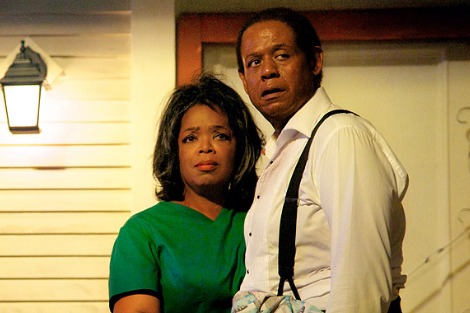
ARTS AND CULTURE
- Tim Kroenert
- 24 October 2013
The idea of viewing the American civil rights movement through the eyes of an African-American butler, ensconced for decades at the White House in the service of eight different presidents, is tantalising. How disappointing then that The Butler is such a sloppy, soppy mess. And with all due respect to Barack Obama, Oprah Winfrey is a big part of the problem.
READ MORE 